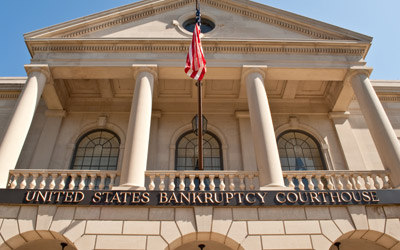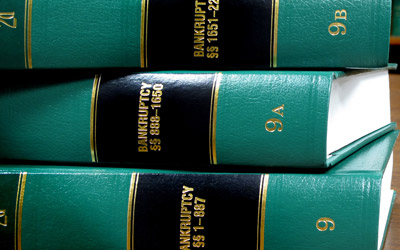Bankruptcy Articles
The Automatic Stay
One of the most important benefits of filing for bankruptcy is the automatic stay. The automatic stay is like a ray gun, and it simply stops your creditors cold just like a phaser gun that is used in Star Trek. Once a debtor files for bankruptcy, then the automatic stay is immediately triggered. The automatic stay bars your creditors from trying to collect their debts from you. Any garnishment on your paycheck must be released. If a creditor is trying to levy your bank account then this must be stopped. The repo man must stop his efforts to snatch your car. Any foreclosure proceedings must be stopped as well. Finally, any and all collection activity against the debtor must be stopped as well. The automatic stay is a federal law under 11 U.S.C. 362 and it bars all collection activities of creditors. The automatic stay provides a period of time in which all legal actions against the debtor, which include judgments, turnovers, and repossession of property are stayed or suspended. In chapter 7 case the automatic stay protects a debtor’s property, and it gives the debtor a “breather” to try to reorganize his financial life.
The stay also prohibits any action whatsoever to collect or obtain money or other property from a debtor. Whether it involves real estate, a vehicle, or personal property from a debtor, all collection actions must stop. Your creditors may not take any action to contact a debtor for any reason. All phone calls, collection letters, lawsuits, foreclosures, and repossession efforts must stop. Any and all future contact regarding debt or debt related matters must be only through the debtor’s legal counsel. Any creditor who violates the stay may be held in contempt of court and will be subject to fines and prosecution. Any property seized from a debtor such as personal property, repossessed autos, tools, machinery, equipment, money in bank accounts as well as any other items must be returned.
The filing of a bankruptcy does not operate as a stay for certain types of legal actions. The collection of alimony and child support are not subject to the automatic stay. The automatic stay will not stop criminal prosecutions against a debtor who has violated a criminal or motor vehicle law.
The automatic stay also stops foreclosures and sheriff’s sales. As for foreclosure under the new bankruptcy law, the automatic stay will not apply if a debtor has filed a prior bankruptcy case within the previous two years and the bankruptcy Court in that case allowed the lender to move forward with the foreclosure. A debtor cannot stay a foreclosure by the filing of serial bankruptcies.
The automatic stay does have other limitations as well. Creditors may file a motion with with the bankruptcy court to obtain permission to continue with lawsuits, to continue a foreclosure case, or to repossess a vehicle. This type of procedure is called obtaining relief from the automatic stay or “stay relief.” A creditor must file a motion called a motion to vacate the automatic stay to continue with any collection actions.
The new bankruptcy code has several provisions for serial bankruptcy filers. Under the new bankruptcy law, multiple or serial bankruptcy filers have a burden of proving that their case was filed in good faith as the automatic stay terminates after 30 days unless the debtor, the trustee, the creditor, or the U.S. Trustee requests the stay to continue and proves that the instant or current case was in fact filed in good faith. A debtor who has filed more than two bankruptcy cases during the previous year must seek a bankruptcy court order to receive any stay relief.






